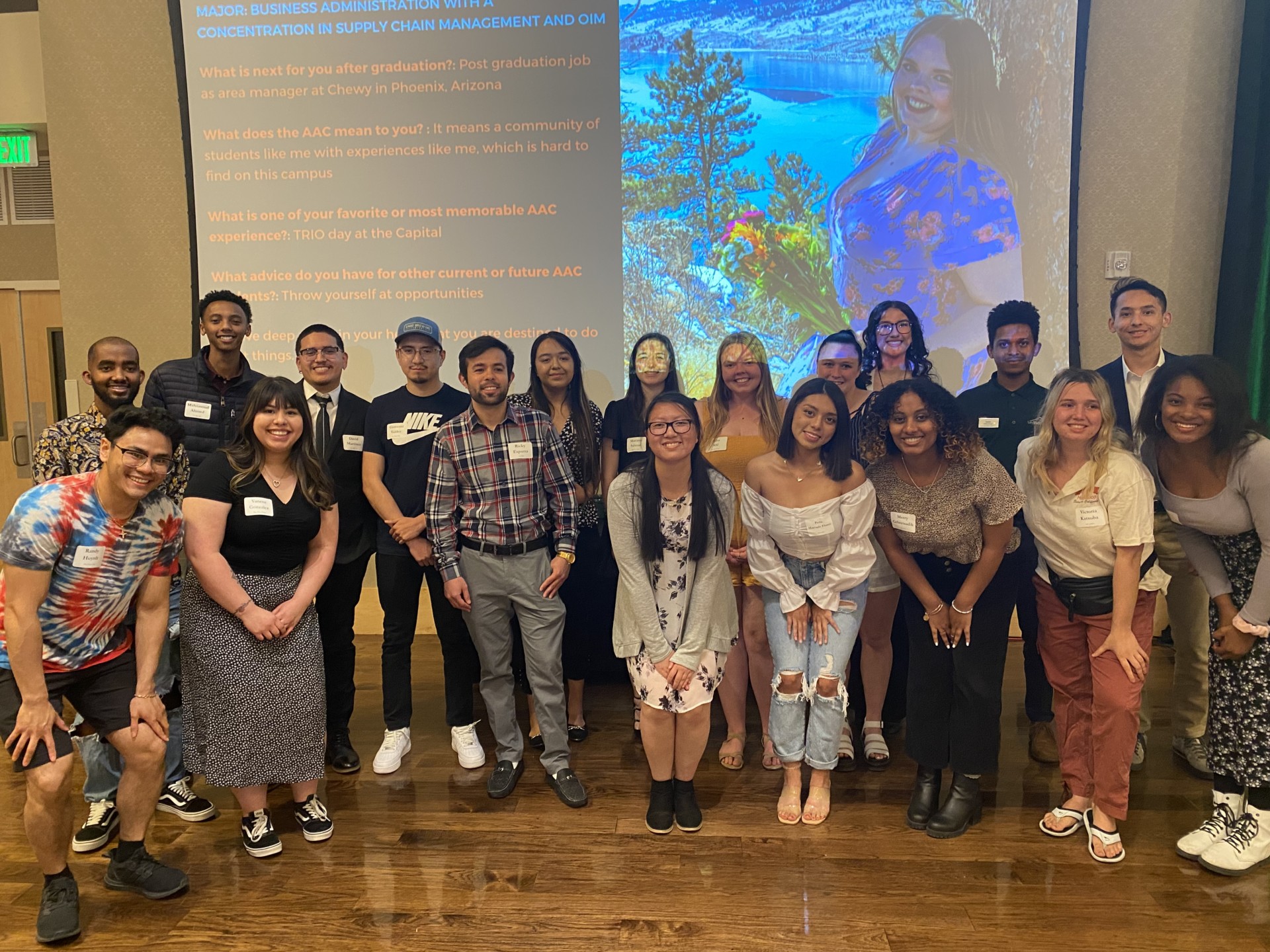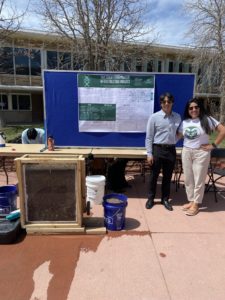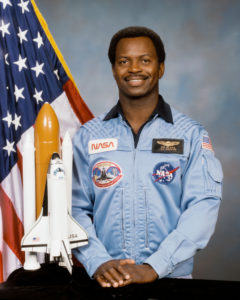
Participants at a recent CSU Academic Advancement Center celebration.
Colorado State University has received funding from the U.S. Department of Education to relaunch its McNair Scholars Program, which provides support for first-generation, low-income and racially minoritized students to pursue doctoral degrees.
Students can apply for the program – which previously existed at CSU years ago and has a presence at about 150 colleges and universities across the nation – until Feb. 17. CSU will receive $261,888 a year for five years to run the McNair Scholars Program, which provides a variety of resources to undergraduate students who qualify. Those resources include a $2,800 stipend to work with faculty mentors on summer research projects and funding to attend conferences and present their work. Housing is also provided free of charge during the summer research projects at CSU. The program also gives students funding to visit colleges and universities they are considering for graduate school.

25 students, 10 years
The program supports a cohort of 25 students at a time for up to 10 years as they pursue their doctoral degrees. The program aims to increase diversity among the ranks of those attending graduate school and earning their Ph.D. Students must be either racially minoritized or both first generation and low-income to qualify.
In addition, the Graduate School and the Office of the Vice President for Research have provided funding for two graduate student assistants to help administer the program. That collaboration and investment likely strengthened CSU’s grant application for the funding, according to Mary Ann Lucero, director of the Academic Advancement Center.
“That’s pretty unique for a McNair Scholars Program,” Lucero said of the funding for the two grad students. “That made our application stronger because it showed support from multiple divisions for the McNair Scholars.”
‘Hard work’
“It’s exciting to see the McNair program back on our campus,” said Colleen Webb, associate dean of the Graduate School. “We appreciate the hard work that went into this and look forward to supporting our next group of McNair Scholars in their journey towards advanced degrees.”
Lucero added: “The intent of the program is to support the student in all ways in their pursuit of a Ph.D., to support students with this dream and show that it’s possible for them.”
Lucero, who succeeded Fabiola Mora as AAC director last summer, and Assistant Vice President for Student Success Ryan Barone credited Mora with doing the heavy lifting on the grant proposal before she left CSU last year.

New director
Grace Ivins, an instructor in the Department of Statistics, was recently hired to be program director of the McNair program, and Stephanie Cuevas in the Academic Advancement Center has been named assistant director.
Ivins is familiar with the value of the program since she was a McNair Scholar herself as an undergraduate at the University of Oklahoma from 2015 to 2017.
“The only reason I was able to apply and be prepared for graduate school was because of the McNair program,” she said. “I would not have made it without it. It changed the course of my life.”
“Grace represents the energy, experience and appreciation for the McNair program’s aims to make this one of CSU’s most valuable contributions to the diversity and richness of our national treasure chest of doctorate-holding citizens,” said Sam Halabi, senior associate vice president for health policy and ethics in the Office of the Vice President for Research.
Ivins’ path
Ivins was born in Odessa, Texas, into a family of modest means. She said her dad never graduated from high school and her mother barely did.
“I don’t even think I knew what college was until I was like 18 or 19,” Ivins said. “I didn’t even know it was a thing and that it existed. I didn’t even start as an undergrad until I was 26.”
She said the McNair program did much more than just provide funding for travel and research projects.
“It was really about knowing there was somewhere that I belonged at a university,” Ivins explained. “There was a place for me. The other thing that it gave me was drive and a mission.
My mission became to enter academia and achieve a high enough level that I could impact change for students who are underrepresented in higher education, so that they have the opportunity to obtain doctorates.”

Prior experience
Even prior to taking on the director role, Ivins was active in student success and diversity efforts. She was involved in the Student Experience Project, served as a member of the Diversity, Equity and Inclusion Committee at the College of Natural Sciences, and co-chaired the statistics department’s DEI committee.
“We aren’t islands; we need the support of our community to reach our goals,” Ivins said of the McNair support system. “From start to finish, we guide them through each step of their graduate student portfolio. It’s really a fantastic experience. We connect them with faculty mentors. Throughout the year, we also provide them with all the opportunities we have here at CSU for undergraduate research and scholarship.”
The McNair Scholarship Program is named for Ronald McNair, who was the second African American astronaut to ever fly on a NASA mission, and who was killed in the 1986 explosion of the Challenger space shuttle.
For more information, or to begin the application process, visit aac.colostate.edu/mcnair.